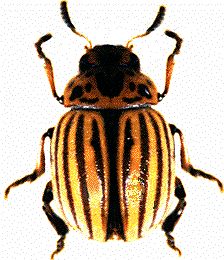The idea of a species - What is the ecological species concept?

Ecological processes may produce discrete species
The ecological species concept supposes that ecological niches in nature occupy discrete adaptive zones with gaps between. The idea is that some sets of adaptations work well in nature, but others do not, and this explain the forms and interbreeding patterns of species.
If two ecological species interbreed, they may produce offspring that fall in a gap between two niches; the offspring will not be adapted. Selection will tend to favor interbreeding with another organism possessing adaptations to at least approximately the same environment.
Imagine the parasites exploiting two host species. The host species will differ in certain respects, perhaps in where they live or their morphology, and the parasites will evolve appropriate adaptations to penetrate one or the other host.
The parasites will tend to become two discrete species, because their environmental resources (hosts in this case) come in discrete forms. For instance, the Colorado potato beetle opposite has become adapted to is host plant and will therefore be quite distinct from a parasite which feeds on a different vegetable. A strong version of the ecological species concept would claim that all species form discrete units, or phenetic clusters, because of discontinuities in their environments.
| Next |



